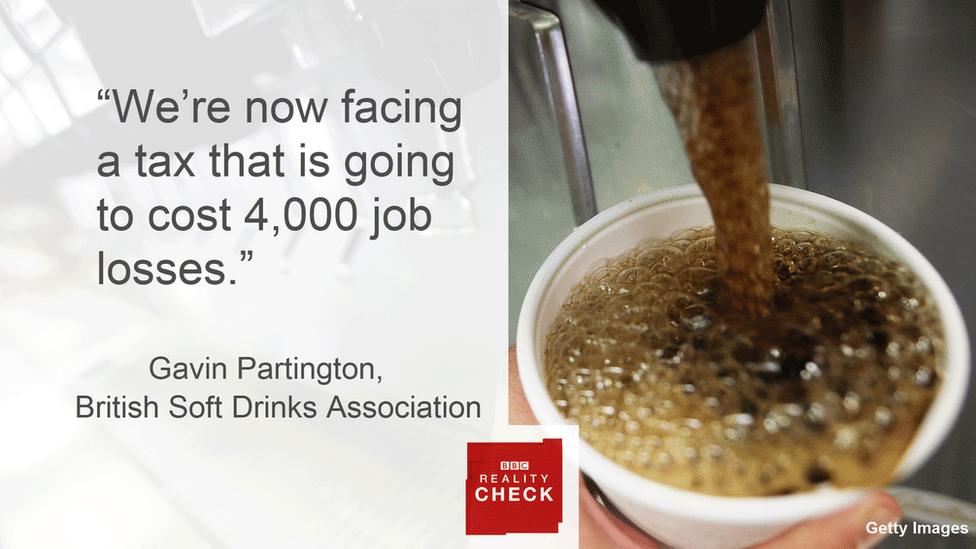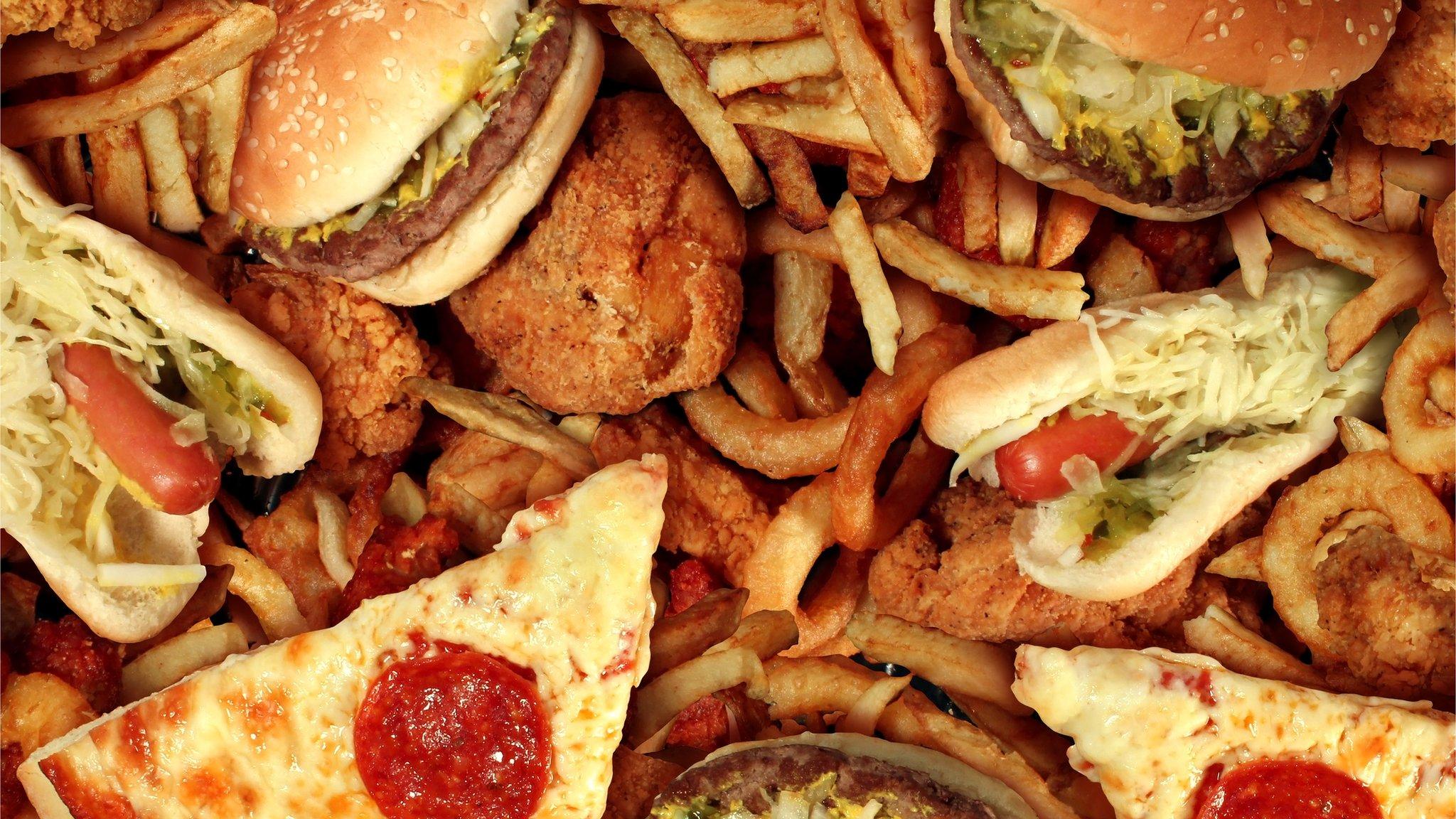Reality Check: Would the sugar tax cost 4,000 jobs?
- Published

The claim: Introducing the soft drinks levy would lead to 4,000 job losses.
Reality Check verdict: The analysis assumes that no changes will be made to the formulation of soft drinks, which is at odds with what the industry says it is doing.
The government released its action plan for childhood obesity, external on Thursday, part of which was the confirmation of the plan for a soft drinks levy, which had been announced in the Budget.
The plans have gone out for consultation, external. The suggested plan is that companies producing or importing soft drinks with added sugar will have to pay a tax.
There are two levels of the tax, a lower level for drinks with between five and eight grams of sugar per 100ml, and a higher level for drinks with more than eight grams per 100ml.
As an example, Coca-Cola contains 10.6g of sugar per 100ml, while orange Tango contains 4.3g of sugar per 100ml.
The government expects the tax to raise £520m in the first year after it is introduced, which the Office for Budget Responsibility worked out meant that the lower rate would be about 18p a litre while the higher rate would be about 24p a litre.
Speaking on Radio 4's Today Programme, Gavin Partington from the British Soft Drinks Association said: "We're now facing a tax that is going to cost 4,000 job losses throughout the supply chain, including pubs and retailers."
That figure comes from research, external commissioned by the British Soft Drinks Association and carried out by Oxford Economics.
It makes two key assumptions: that the levy is passed directly onto consumers of the higher sugar drinks and that there are no changes to the formulation of the drinks.
The assumption of no changes in formulation is a problem - Mr Partington was keen to stress that his association announced plans last year to cut 20% of calories from soft drinks by 2020, which would presumably involve using considerably less sugar.
Also, the government was clear that the levy was supposed to encourage manufacturers to change their recipes, which was why it went for a levy on producers and not a tax on consumers.
The Oxford Economics analysis is based on an increase in price of 23p to 24p a litre rather than the 18p or 24p calculated by the OBR.
From this, the analysis concludes that there would be a 0.4% reduction in the amount of soft drinks sold.
The research then looks at people directly employed by the soft drinks industry, companies supplying goods and services to the industry, and businesses supported by the wages that those groups then get to spend.
It concludes that 346,518 jobs depend on making and selling soft drinks.
With a 0.4% fall in sales, leading to a 1.2% fall in employment, the analysis concludes that 4,000 of those jobs would be lost.



- Published18 August 2016

- Published17 March 2016
- Published22 February 2016
